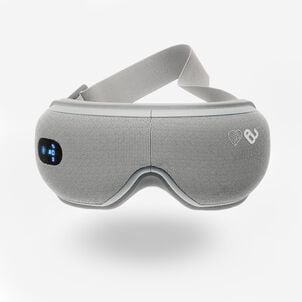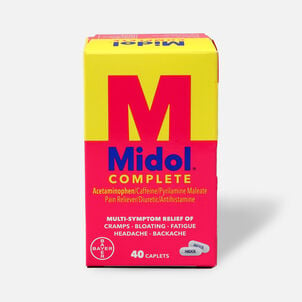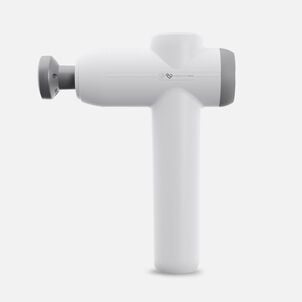The higher the deductible, the lower the premium (in most cases). And that high deductible health plan (HDHP) is also attractive because you can now get a health savings account (HSA) to further offset your medical costs.
Finding out these details and painstakingly checking the right boxes when signing up for an HSA during open enrollment is like cracking the code of a high-security (and high-deductible) door. But once you get past the door, you might be asking, “Well, what now? How does it even work? Where’s my promised treasure of a boost to my retirement plans?” Well, you’re not quite done yet. In this guide, we’re going over the most important part of an HSA...

How to properly use the money
Because after opening that door there’s a hidden pathway filled with secret pitfalls (also known as tax penalties), giant boulders (also known as what counts as a “qualified medical expense”) and forks in the road (also known as planning for unexpected health costs). But with some info from this simple guide, you’ll be well on your way to Indiana Jones-ing your way to a better future.
What do you mean by “qualified?”
According to the IRS, the term "medical care" means anything used for the diagnosis, cure, mitigation, treatment, or prevention of disease, or for the purpose of affecting any structure or function of the body. And if it's primarily for "medical care," then it'll be qualified to buy with your tax-free HSA dollars. In other words, new sneakers = no. Pain-relieving foot circulator = yes.
Any transportation needed for medical care — yes, even taking a Lyft to the doctor — is also qualified. The truth is, the IRS has been pretty accommodating when it comes to qualified medical expenses. If your need falls within common definitions of "medical care," it's worth checking with your plan administrator (can be found on the back of your HSA card or by speaking with your employer) to see if the product or service is HSA-eligible. Still, there are still a lot of "gray areas" when it comes to eligibility. Our Eligibility List is the most-updated one of its kind, but for definitive answers, it's good to always check.
A very brief overview
Qualified: Qualified medical care expenses must be for products or services designed to alleviate or prevent a condition or illness. So, any product or service billed by a doctor/hospital/urgent care, optometrist, chiropractor, dental clinic (excluding cosmetic) including copays for those visits are all qualified. Also qualified are prescription medication and products like contacts, hearing aids and more.
NOT Qualified: Insurance premiums (these are not eligible under your HSA with limited exceptions), cosmetic surgery, health club memberships or other services that are cosmetic, personal, or for general good health, like every-day vitamins or spa getaways (as much as we'd want them to be).
Who can take advantage of an HSA?
HSAs can cover you, your spouse, or your qualified tax dependent. That's it — no exceptions. If you can claim a person as a tax dependent, then they're eligible to benefit from HSA funds. The good news is that these dependents qualify, even if they have their own HSAs!
When can I spend these funds?
So here's the thing, to be considered qualified, these medical expenses have to happen after you've opened your HSA. You can open your HSA on the first day of the month following your enrollment in a qualified HDHP. In other words, if you open your HDHP on September 1st, then you can't open an HSA until October 1st or later.
Certain banks may have more specific limits on these dates, so check with your employer before making purchases to make sure they're actually reimbursable.
More importantly, give yourself time. Add tax-free money to your HSA before you need it, to avoid frustration and confusion down the line.
How can I pay for qualified medical expenses?
You can pay for your qualified medical expenses however you want — the key is in good record keeping. Here are the two most-common approaches.
Pay using your HSA
When you have a medical expense (and you're absolutely sure it's eligible), you can pay for it directly out of your HSA using a debit card, or a bank check. Some HSA plans charge small fees for using checks, but either option is convenient, as it eliminates a lot of the tracking and bookkeeping needed with this next one...
Pay out of pocket
You can pay expenses out of pocket and reimburse yourself when you need the money since there's no "use it or lose it" rule with HSAs. The benefit of leaving your HSA funds in the account until you need them, is it lets your money continue to grow tax-free, adding to your HSA's total value. (But we'll get to that in a bit.)
Using your HSA as cash
Who doesn't want to have a little stash of cash for a rainy day? And maybe that rainy day involves buying a new 4K flat-screen. Those are good for your health right? You might want to take your money out of your HSA and use it to fulfill your high-def dreams.
But, before you go to the ATM and empty out your HSA funds, be careful — there may (and probably will) be tax consequences to withdrawing money. Let's discuss your options.
Part of the advantage of an HSA is that you can save significantly on taxes by contributing to the account. The catch is, this money can only be used for qualified medical expenses, as we mentioned earlier. And because of that, the government doesn't look fondly at not playing by the rules (however badly you wanted that TV).
Still, here are three options for withdrawing money from your HSA:
Non-qualified withdrawal (with a penalty)
In other words, using your account for non-qualified expenses means the taxes you skipped when contributing to your HSA, come back to haunt you - often at a (very) steep price:
Taxes, taxes… The HSA money you take out will be added back to your gross income. Meaning you'll owe taxes. Let's say your tax rate is 20% and you withdraw $1,000 for that new TV - you'll also have to pay back $200 in taxes!
On top of the taxes above, there's another 20% penalty for non-qualified withdrawals. If we revisit the same example, that comes out to $400 in taxes and fees, leaving you with just $600 of the $1,000 you originally wanted.
One item to keep in mind: If you're over 65, this penalty is waived — one of many reasons we view HSAs as a great long-term savings vehicle, as you'll only owe income taxes on non-qualified withdrawals.
Also, if you've accrued HSA receipts for unreimbursed medical expenses, it becomes a source of emergency funds. Granted, this isn't the most ideal investment strategy, but hey, emergencies happen. This is a big advantage over accounts such as 401(k) which are more tightly "locked," and have a penalty for most cash withdrawals.
At the end of the tax year, you have a choice of making a lump sum transfer to your HSA for that year's contribution. It might hurt for a minute - but making a larger contribution late in the year is way better than paying taxes (up to 40% for some) on that money.
Use for qualified medical expenses
Assume you have a doctor's appointment that you pay for out of pocket using a credit card, debit card, or cash. Since this is a qualified medical expense, you can reimburse yourself tax-free for the cost of the appointment with your HSA funds.
Here's a tip. Your HSA can also function as a backup emergency fund, letting you withdraw tax-free cash when you really need it. You can only do this if you delay reimbursing yourself for previous medical expenses you paid out of pocket for. This allows you to withdraw a larger amount of money at a later time. To do this, just transfer money from your HSA to your checking account. Simple!
Use the funds for anything (once you turn 65)
Congratulations — this might be the most exciting birthday you've had since you were 21. That's because if you're 65 or older, your HSA rules have just been freed up. You can now spend your HSA funds on whatever you want, not just qualified medical expenses. (Forget the TV, you're going for that beach house now!)
You'll still have to pay back the income tax you skipped when you contributed to your HSA but now, you don't have to worry about the additional 20% tax penalty! Phew! As an added bonus to using your HSA money for whatever you'd like now, you'll also likely pay less income tax in retirement than your tax rate when you first contributed the funds, while also benefiting from your tax-free investment earnings on that money for many years.
—
Thank you for visiting the HSA Store Learning Center. Don’t forget to follow us for more helpful tips on Facebook, Instagram, and Twitter.


.png)
















